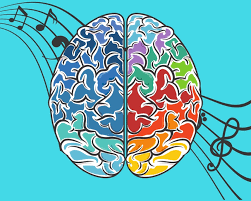I was 7 years old when I learned Beethoven’s “Fur Elise” as a pianist. My eyes read the notes, ears listened, and fingers translated the symbols with the correct speed, rhythm, and expression. My mind saw the benefit as the joy of creating music. My brain was wired for classroom learning, which I didn’t realize.
Even though the music was a foundation for my intellectual growth and nurtured my mind, the country has slowly moved away from music education. Too many schoolchildren learn without effective discipline. Instead, loud national debates bounce around from one “fix” to the next, No Child Left Behind or Common Core. Music lessons, which new research has shown is vital for brain development, are still on the cutting-room floor.
Executive function is a key neurocognitive skill that can be developed by playing a musical instrument. For the brain to function in school and life, it must have strong EF. The brain needs to function in school and life. Examples include focusing on a topic, learning new information, memory, cognitive flexibility, paying attention to multiple ideas at once, and inhibition. It is the core of all learning.
These skills are essential for brain development and healthy brain development into adulthood. Recent Laboratories of Cognitive Neuroscience Boston Children’s Hospital studies have shown that EF is a stronger predictor of academic success than IQ.
It is not enough to have standardized testing and tutoring in the elementary years. This will solve your academic problems. Music performance, especially in the early years of childhood, promotes EF skills. The Boston Children’s Hospital conducted an MRI brain imaging study this summer that showed musical training could promote developing and maintaining these abilities. Nadine Gaab, the lead investigator, says that children who have been musically trained show more activation and “more mature Executive Function Networks.” This supports the widespread belief that academic achievement and music performance go hand-in-hand.
The U.S. El Sistema chapters are living proof of the power of music to transform the most marginalized children into learners. This is a program that provides intensive music training for the poorest children. Programs in Philadelphia, Los Angeles and Baltimore, and dozens of cities around the country, have had positive results for students. Stanford Thompson, the executive director of Play on Philly, a local El Sistema program, boasts that his students outperform peers who choose academic tutoring or other afterschool programs as measured by an independent educational evaluation firm. Similar stories of higher academic performance in other cities are also emerging.
These programs, funded privately, only benefit a very small number of children. Districts don’t realize the positive effects music performance can have on academic performance.
It is time to change elementary and preschool education to make music performance a core subject. Research shows that early intervention is crucial to preventing academic gaps from worsening. Imagine music training being a key component of Head Start, which serves nearly 1 million children each year. Preschoolers could learn to play and read music. An important component of elementary education could include music training in an ensemble. Standardized tests will be easier for students to focus and process information more efficiently.
Complacency and resistance to change have harmed our children, especially the most vulnerable. The truth is that playing an instrument wire your brain for learning. Teaching students how to play the piano can help them succeed in other areas.
It’s time to pay more attention to and rethink our education system. Music should not be a burden on children. All children can have my “Fur Elise!” moment.

